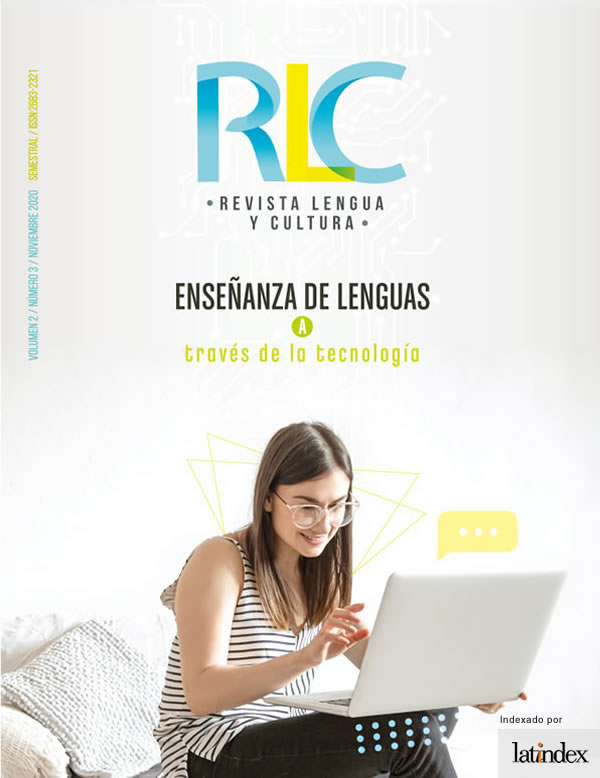The implementation of ICTs in the English language classroom in a Latin American university
Abstract
This investigation was carried out in Mexico in the Universidad Autónoma del Estado de Hidalgo (UAEH) with the purpose of exploring and analyzing to what extent the English teaching practices at the tertiary level involve the use of ICTs. Through and electronic survey, the opinions of 50 teachers of English at the UAEH were analyzed. The results showed that ICTs play an essential role in language teaching and they also have a significant field presence. However, despite their importance, ICTs are not being fully incorporated in the university and we are still not getting the most of it. The methodology for the initial phase of the project was a questionnaire. The qualitative part included a case study method that explore specific cases. For this stage, semi-structured interviews were carried out with key participants chosen from the information gathered in the questionnaires. The third source of data includes the analysis of the documents that make up the legal framework in reference to the implementation of ICTs in the teaching of a foreign language.
Downloads
Literaturhinweise
Araya, J. and Gamboa, B. (2012). Technology and new language trends: the role of the ESL teacher. Universidad Nacional, Costa Rica. https://www.wcupa.edu/knowledgecrossingborders/2012/PDF/6.1.1%20Araya%20and%20Gamboa.pdf
Arteaga L. C. (2011). Uso de las TIC para el aprendizaje del inglés en la Universidad Autónoma de Aguascalientes. Apertura, 3(2). ISSN: 1665-6180. https://www.redalyc.org/articulo.oa?id=688/68822737007
Azmi, N. (2017). The Benefits of Using ICT in the EFL Classroom: From Perceived Utility to Potential Challenges. Ecole Nationale de Commerce et de Gestion, Université Cadi Ayyad de Marrakech. http://www.mcser.org/journal/index.php/jesr/article/view/9732
Barrera Cobos, M. (2010) The use of corpus Linguistics to teach cognates to Spanish-speaking English language learners. Mextesol, Vol. 34 No. 2. ISSN: 2395-9908. https://mextesol.net/journal/index.php?page=journal&id_article=47
Bauman, Z. (2009). Education in the Liquid-Modern setting. Power and Education Volume 1 Number 2. https://journals.sagepub.com/doi/pdf/10.2304/power.2009.1.2.157
Bauman, Z. (2005). Los retos de la Educación en la Modernidad Líquida. Barcelona, España: Gedisa. http://ciec.edu.co/wp-content/uploads/2017/06/Bauman-Zygmunt-Los-Retos-De-La-Educacion-En-La-Modernidad-Liquida-1.pdf
Bauman, Z. (2000). Liquid Modernity. Cambridge, UK. https://epdf.pub/liquid-modernity.html
Biggs, J. (2006). Calidad del aprendizaje universitario. Narcea, S.A. De ediciones. España. https://barajasvictor.files.wordpress.com/2014/05/libro-j-biggs.pdf
Campuzano, J. (2017). Exploring the Role of Technology through Collaborative Learning in Ecuadorian Language Education. In: INNOVA Research Journal. 2, (10), 1-11. ISSN 2477-9024 file:///C:/Users/1077970319/Desktop/429-Texto%20del%20art%C3%ADculo-1454-3-10-20190522.pdf
Cobos Torres J. C. (2013) Integración de un chatbot como habilidad de un robot social como gestor de diálogos. Tesis no publicada. Universidad Carlos III de Madrid. Departamento de Ingeniería de Sistemas y Automática. Leganés, Madrid. http://repositorio.educacionsuperior.gob.ec/bitstream/28000/1201/1/T-SENESCYT-000332.pdf
Coll, C. (2004). Psicología de la educación y prácticas educativas mediadas por las tecnologías de la información y la comunicación. Una mirada constructivista. Sinéctica, Revista Electrónica de Educación, (25). ISSN: 1665-109X. https://www.redalyc.org/articulo.oa?id=998/99815899016
Georgiev, T., Georgieva, E., & Smrikarov, A. (2004). M-Learning-a New Stage of ELearning. International Conference on Computer Systems and Technologies-CompSysTech´2004.IV.28, 1- 5. www.researchgate.net/publication/228761975_M-learning-a_New_Stage_of_ Learning/file/eob495151514d5274b.pdf
Greene, J. C., Caracelli, V. J., & Graham, W. F. (1989). Toward a Conceptual Framework for Mixed-Method Evaluation Designs. Educational Evaluation and Policy Analysis, 11(3), 255–274. https://doi.org/10.3102/01623737011003255
Guzmán Cova, M. (2010) Virtual Portfolios in Blended Learning : Assessment and Collaboration.
Mugford, G. (2010). Technology and Teacher Training : Assessing Incidental Learning on In-service Courses. Vol. 34 No. 2, 2010. ISSN : 2395-9908.
Nomass, B. (2013). The Impact of Using Technology in Teaching English as a Second Language. Journals English Language and Literature Studies. Vol. 3, No. 1. http://www.ccsenet.org/journal/index.php/ells/article/view/25002
Pownell, D. & G. D. Bailey. (2001). Getting a handle on handhelds. American School Board Journal 2001 188:18–21. In [28] Wang, V. C. X. (2013). (Ed.) Handbook of research on technologies for Improving the 21st Century Workforce: Tools for Lifelong Learning. USA: Information Science Reference.
Pereira Pérez, S. (2011). Mixed Method Design in Education Research: A Particular Experience. XV, No. 1. Heredia, costa Rica: Revista Electrónica Educare. http://dialnet.unirioja.es/descarga/articulo/3683544.pdf
Plan de Desarrollo Institucional (PDI-2011-2017) Universidad Autónoma del Estado de Hidalgo. Disponible en: http://www.uaeh.edu.mx/excelencia/pdi.pdf
Programa Institucional de Lenguas (PIL-2013) https://www.uaeh.edu.mx/adminyserv/gesuniv/div_docencia/dui/docs/programa_institucional_de_lenguas__ pil_.pdf
Pownell, D. & Bailey, G. (2001). Getting a handle on handhelds: what to consider before you introduce hanheld computers in your school. American School Board Journal, 188(6), 18-21
Scott, J. G. (2016). Connectivism: A knowledge learning theory for the digital age?, Medical Teacher, 38:10, 1064-1069, DOI: 10.3109/0142159X.2016.1173661
Tobón, S. (2010). Formación integral y competencias: Pensamiento complejo, currículo, didáctica y evaluación. 3a ed. Bogotá: ECOE.
Tobón, T. S., Pimienta, P. J., y García Fraile, J. A., (2010). Secuencias Didácticas: Aprendizaje y Evaluación por Competencias. Prentice Hill.
Zur, O. (2011). On Digital Immigrants and Digital Natives: How the Digital Divide Affects Families, Educational Institutions, and the Workplace. https://www.zurinstitute.com/digital-divide/
Prensky, M. (2001). Digital Natives, Digital Immigrants. From On the Horizon (MCB University Press, Vol. 9 No. 5, October 2001) https://www.marcprensky.com/writing/Prensky%20-%20Digital%20Natives,%20Digital%20Immigrants%20-%20Part1.pdf
Copyright (c) 2020 Rosario Ruiz-Ortega

Dieses Werk steht unter der Lizenz Creative Commons Namensnennung - Nicht-kommerziell - Keine Bearbeitungen 4.0 International.













